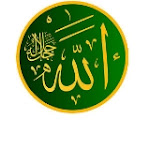Unveiling the Oneness: Understanding Monotheism in Islam and Christianity
Religious beliefs and practices hold a central place in the lives of billions of people worldwide. Among the major faiths, Islam and Christianity stand out as two of the largest and most influential religions. While both faiths acknowledge the existence of a supreme being, there are distinct differences in how they understand and worship God. This article aims to shed light on the concept of monotheism in Islam and Christianity, specifically exploring why Islam emphasizes the worship of one God and not three like Christianity.
Monotheism in Islam:
At the core of Islamic theology lies the principle of monotheism, known as "Tawhid." Muslims firmly believe in the absolute oneness of Allah, which is the Arabic term for God. The concept of Tawhid is deeply rooted in the Quran, the holy book of Islam, and serves as the fundamental pillar of Islamic faith. Muslims view God as a singular, indivisible entity without partners or associates. This belief finds expression in the Islamic creed, the Shahada, which states, "There is no god but Allah, and Muhammad is His messenger."
Islamic Monotheism and the Nature of God:
In Islam, the belief in the oneness of God extends beyond the numerical count. Muslims emphasize the unity of God's attributes and reject any notion of a trinity or division within the divine essence. Allah is considered transcendent, incomparable, and beyond human comprehension. The Quran emphasizes God's uniqueness by declaring, "Say, 'He is Allah, the One; Allah, the Eternal Refuge; He neither begets nor is born, nor is there to Him any equivalent.'" (Quran 112:1-4)
Islamic Monotheistic Practices:
Islamic worship, known as "Ibadah," is centered around the sole worship of Allah. Muslims engage in various acts of devotion, including prayer, fasting, charity, and pilgrimage. The Five Pillars of Islam, which are essential obligations for every Muslim, underline the importance of monotheism in Islamic practice. These pillars include the testimony of faith (Shahada), prayer (Salah), giving to charity (Zakat), fasting during Ramadan (Sawm), and the pilgrimage to Mecca (Hajj).
Christianity and the Trinity:
Unlike Islam, Christianity incorporates the concept of the Trinity, which holds that God is triune—Father, Son, and Holy Spirit. Christians believe in the divinity of Jesus Christ, considering him to be the Son of God and part of the Holy Trinity. While the Trinity is a complex and profound theological concept, it is crucial to understand that Christians believe in the oneness of God, albeit expressed in a triune nature.
Historical Context:
The divergence between Islamic monotheism and Christian trinitarianism can be traced back to the historical development of these faiths. Islam emerged in the 7th century CE in the Arabian Peninsula, building upon the monotheistic traditions of Judaism and Christianity. Christianity, on the other hand, originated in the 1st century CE, influenced by Jewish monotheism but shaped by the teachings of Jesus Christ and subsequent theological debates.
The question of monotheism in Islam and Christianity unveils the contrasting ways in which these two major religions understand and worship God. Islam places strong emphasis on the absolute oneness of God, rejecting the concept of a trinity or any division within the divine essence. The Islamic concept of Tawhid serves as the cornerstone of the faith, shaping Muslim beliefs and practices. Conversely, Christianity embraces the Trinity, acknowledging the unity of God while also recognizing the distinct roles of the Father, Son, and Holy Spirit.






0 $type={blogger}:
Post a Comment
Dear Friend,
I hope this message finds you well. I just wanted to take a moment to thank you for your recent comment on our [blog/article/post]. Your feedback is greatly appreciated and helps us to continue improving our content for our readers.
If you have any further questions or comments, please don't hesitate to reach out. We value your input and look forward to hearing from you again soon.
Best regards,
[Hicham NOUR EL YAKINE]